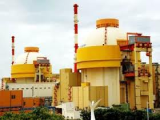On May 6, 2013 the Supreme Court dismissed several PILs ( Civil Appeal No 4440 of 2013 and other related PILs) against the commissioning of the Kudankulam Nuclear Power Plant. While giving its nod, the Court gave 15 directions related to ensuring the quality of various components and systems, management of spent nuclear fuel, fulfillment of conditions prescribed by the Ministry of Environment and Forests (MOEF) and the Atomic Energy Regulatory Board, enforcement of National Disaster Management Guidelines 2009 among others. The court directed that the Atomic Energy Regulatory Board (AERB) should maintain constant vigil and make periodical inspection of the plant at least once in three months and if any defect is noticed, the same has to be rectified forthwith.
The Supreme Court has noted that India’s National Policy has been clearly and unequivocally expressed in the Atomic Energy Act and the national and international policy of the country is to develop control and use of atomic energy for the welfare of the people and for other peaceful purposes. NPP has been set up at Kudankulam as part of the national policy which is discernible from the Preamble of the Act and the provisions contained therein.
At the very outset, the Supreme Court declared that it is not for the Courts to determine whether a particular policy or a particular decision taken in fulfillment of a policy, is fair. “Reason is obvious, it is not the province of a court to scan the wisdom or reasonableness of the policy behind the Statute”. The Court observed that they are however deeply concerned with the safety and security of the people of this country, its environment, its flora and fauna, its marine life, ecology, bio-diversity and so on which the policy makers cannot on the guise of national policy, mutilate or rob of, in such an event the courts can unveil the mask and find out the truth for the safety, security and welfare of the people and the mother earth.
The Court highlighted the importance of setting up a Deep Geological Repository(DGR). “We may, however, caution that it is of utmost importance that the Union of India, NPCIL etc. should find out a place for a permanent DGR. Storing of SNF at NPP site will, in the long run, poses a dangerous, long term health and environmental risk. NPCIL and the Union of India is bound to look at the probabilities of potentially harmful events and the consequences in future. Noticeably, NPCIL does not seem to have a long term plan, other than, stating and hoping that in the near future, it would establish a DGR.”, the court observed.
The Court noted that much hue and cry has been raised by some sections of the people about the possible impact of radiation from KKNPP Units 1 and 2, a point which has been addressed by the AERB, NPCIL, MoEF and all the Expert Committees constituted to go into the impact and effect of radiation from the units not only on humans but also on ecology. .”We have noticed that, so far as this case is concerned, from the safety and security point of view of life and property, on environment and all that related aspects, all the Expert Bodies are unanimous in their opinion that KKNPP has fully satisfied all safety norms to safeguard the human life, property and environment which, we are sure, will allay the fears and apprehensions expressed by the people living in and around Kudankulam. The Court, in our view, cannot sit in judgment on the views expressed by the Technical and Scientific Bodies in setting up of KKNPP plant at Kudankulam and on its safety and security.” the Court observed.
The Court clarified that we have to balance “economic scientific benefits” with that of “minor radiological detriments” on the touchstone of our national nuclear policy. “NPCIL, while setting up the NPP at Kudankulam, have satisfied the environmental principle like sustainable development, corporate social responsibility, precautionary principle, inter – intra generational equity and so on to implement our National Policy to develop, control and use of atomic energy for the welfare of the people and for economic growth of the country. Larger public interest of the community should give way to individual apprehension of violation of human rights and right to life guaranteed under Article 21.” the Court observed.
“Apprehension expressed by some sections of the public that if the units are commissioned or put into operation, it will have far reaching consequences, not only on the present generation, but also on the future generation, of the possible radioactive effects of the units, in our view has no basis.” The Court asserted. After highlighting the importance of nuclear power in the energy mix of the country, the judges stated that India has a mammoth population unlike developed countries, and the consumption of electricity in domestic, industries, agricultural sector etc. is going up day-by-day.
“Most of the States are in the grip of power cut; day and night, for a number of hours, which has adverse effect on their economic and industrial growth. To sustain rapid economic growth, it is necessary to double the supply of energy. Energy tariff is also increasing, nuclear power in the long run will be much cheaper than other forms of energy.” the Supreme Court argued. “Power generation with the traditional means, through hydro, thermal electric project, coal etc are not effective substitution to the power generation through Nuclear Plant.” the court opined.
“Nuclear power plant is being established not to negate right to life but to protect the right to life guaranteed under Article 21 of the Constitution. The petitioner’s contention that the establishment of nuclear power plant at Kudankulam will make an inroad into the right to live guaranteed under Article 21 of the Constitution, is therefore has no basis. On the other hand it will only protect the right to life guaranteed under Article 21 of the Constitution for achieving a larger public interest and will also achieve the object and purpose of Atomic Energy Act.” the court clarified. Before issuing the directions the Court, stated that the appellant, by this Public Interest Litigation, has, in a way, invoked and aroused the conscience/ concern of the court to such an issue.
“True it is, the prayer is for the total closure of the plant and the Court has not acceded to the said prayer but his noble effort is appreciated to put forth the grievance of the local people and the necessity of adequate safety measures as is perceived. When such cause comes up before this Court, it is the bounden duty to remind the authorities “Be alert, remain always alert and duty calls you to nurture constant and sustained vigilance and nation warns you not to be complacent and get into a mild slumber”, the Court added
Interestingly , the Court directed that endeavour should be made to withdraw all the criminal cases filed against the agitators so that peace and normalcy be restored at Kudankulam and nearby places and steps should be taken to educate the people of the necessity of the plant which is in the largest interest of the nation particularly the State of Tamil Nadu. Since India plans to set up several nuclear power plants nation-wide, the nuclear power proponents must set up a dedicated agency to communicate effectively with the public. – PTI Feature
































